
每年的五月都被指定为亚裔美国人和太平洋岛民 (AAPI) 传统月,以表彰亚裔美国人和太平洋岛民在美国的许多成就和贡献,同时庆祝和展示他们的多元文化和传统。
众所周知,在美国的学术界和科技界出类拔萃的亚裔数量不容小觑。然而,在政经法律领域,有影响力的亚裔却是屈指可数,寥寥无几。值得庆幸的是,全美国已有一些优秀的亚裔法律专业人士脱颖而出成为法律界翘楚和领军人物,被任命为各级法院的法官。如果您正在寻找这样的榜样人物,您不必寻找遥远的地方。因为,幸运的是,在我们马里兰州蒙哥马利郡就有一位。
2022 年 1 月,时年 41 岁的 Rosalyn Tang 被当时的马里兰州州长拉里·霍根任命为代表蒙哥马利郡的马里兰州上诉法院第七巡回上诉法院法官。 她是马里兰州法官任命历史上第一位获此殊荣的亚裔,也是最年轻的女性。在她之前, 马里兰州已有数名亚裔被任命为地方法院和巡回法院的法官,但却没有人被任命为上诉法院法官。她创造了历史!
出生于华盛顿特区,在蒙哥马利郡长大,是台湾移民家庭的第二个女儿。父母给她取的中文名(唐佳钰)寓意成为佳人美玉,寄予美好期望。而她也不辱其名,一路优秀,人如其名。
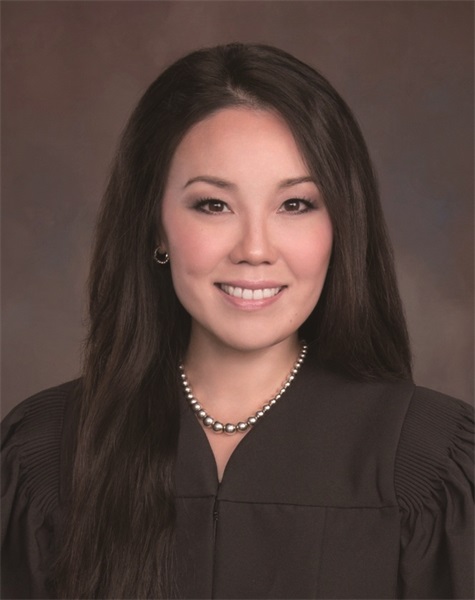
她就读于贝塞斯达的一所私立女校(Holton-Arms School)。在获得杜克大学的本科学位和德州南方卫理公会大学戴德曼法学院的法律学位后,她在竞争激烈的甄选过程中被选中先后为两位杰出的巡回法院法官担任司法助理,受到鼓励, 她萌生了自己有朝一日成为法官的愿望。
完成法律助理工作后,她又先担任过蒙哥马利郡州检察官办公室的助理州检察官,后担任过蒙哥马利郡郡检察官办公室的副郡检察官。在被任命为上诉法院法官之前,她曾在私营律所(Miles & Stockbridge, P.C) 工作,处理一般民事诉讼案件包括商业、房地产和家庭相关案件。另外,她还在专业组织中担任领导职务,例如担任蒙哥马利郡律师协会执行委员会委员,妇女律师协会蒙哥马利郡分会主席和马里兰州亚太美国律师协会主席。
总之,唐法官在私营和政府机构,民事和刑事案件的法律实践中积累了广泛的经验。这对任何律师来说都是不可思议的成就。她全面的经验为未来成为法官奠定了坚实的基础。
近日,美华商报(A&C Business News) 有机会采访了唐法官,请她分享个人成长经历以及亚洲背景和文化对她成功的法律职业生涯的影响。
您为什么从事法律职业?我去杜克大学是因为当时我想成为一名工程师。 我在马里兰大学参加了一些以工程为重点的暑期课程,我认为那是我想学的。 然而,当我在一家法律事务所做了暑期实习获益匪浅后,我决定大学毕业后要去上法学院。
您为什么选择德克萨斯州的法学院? 我最终来到了德克萨斯州达拉斯的南方卫理公会大学 (Southern Methodist University Dedman School of Law) 法学院。 这是一所好学校,给了我部分奖学金,给我提供了离开家乡到外州生活的经历。
您为什么在法学院毕业后又回到马里兰州? 我与家乡蒙哥马利郡有着紧密的联系并已在蒙哥马利郡找到了一份律所工作。
为什么与其他领域相比,从事法律职业的亚裔看起来仍然不那么多?这有很多不同的原因。其中之一是很多亚裔被鼓励进入医学或数学以及科学或工程领域。 我的父母就曾鼓励我尝试工程学,所以我一开始就走那条路直到我发现我真的很喜欢把写作和分析推理能力用在不同的领域。另外一个仍然没有那么多的亚裔从事法律工作的原因可能是法律专业还没有被普遍认为是一条容易入行的职业道路。
您为什么想成为法官? 我在大学后期阶段才决定要上法学院。 法学院毕业后,我为两位出色的蒙哥马利郡巡回法院法官担任司法助理。我认为拥有司法见习经历是一种非常有益的经历,因为你可以在法庭上看到不同法律范畴的实践,看到不同的角色扮演者的表现,比如辩护律师和检察官。 这段经历也让我对法官的思维方式有了一些深刻的了解。 我担任司法助理的两位法官,他们的想法不一样,因为他们从自己的实践经验中汲取灵感。 因此,我得以从两位不同的法官那里获取经验。这段经历也激励我成为一名诉讼律师。所有这些经历让我有一天在我准备好时申请法官职位。机会来临时,我真的很幸运,州长对任命我充满信心。
成为一名法官最重要的特征或特质是什么?第一是要有良好的判断力和诚信度。 第二,广泛的不同领域的各种实践经验,但这不是必需的。 重要的是要保持开放的心态,批判性地阅读案例和分析法律,并清楚地传达意见。 我很幸运,我在刑事、民事,政府和私营律所拥有不同的工作经验,所有这些都帮助我获得了不同的观点。 最后,拥有良好脾气 [耐心] 确实也非常重要,无论是在审判法庭还是上诉法庭。
您希望别人如何看待您?我希望被别人认为是可靠的、负责任的,并且是人们可以信赖的人,因为他们知道我会做好我的工作。
亚裔文化和遗产的哪些部分影响了您的成长? 我认为伴随我长大并从父母那里继承的文化核心价值观确实影响并塑造了我在工作和其他活动中采用的方式。 他们教会了我努力工作和牺牲精神。 他们打了好几份工来养活三个孩子。 他们开了一家餐馆。 我有美好的回忆,小时候在中餐馆度过了很多时光,一边做作业一边等我妈妈很晚关店。所以这就成为了我的职业道德根基所在。我妈妈总是告诉我“你需要至少付出110% 的努力。” 他们教我的第二件事是要谦虚。
您对寻求职业发展的亚裔法律专业人士有何建议? 需要保留那些好的、强盛的文化价值观和核心价值观。 我会鼓励年轻一代多做一些社交活动,多做一些外展活动,结识一些人,因为这非常有帮助,不仅对社区互动,而且对职业发展也有帮助。 知道如何与人交谈,知道如何与人建立联系,并对他人产生真正的兴趣。 此外,我真的会鼓励他们申请领导职位,无论是担任律师协会某个部门的主席。 亚裔律师协会是一个非常好的入门方式,因为它的会员规模较小。
为什么缺少亚裔法官? 我认为这可能是几个因素的结合。 我刚刚在马里兰大学法学院发表演讲。 那是APLSA(亚太法律学生协会)一年一度的春季招待会,他们邀请我发言。 主题是捅破竹子天花板,从一本“捅破竹子天花板”的书名而得 (作者是Jane Hyun)。 这本书讨论了有些亚裔文化如何影响我们在专业上表现出色和担任领导角色的能力。在我成长过程中,我被灌输要服从比我年长和更有经验的人,对别人表示尊重。另一个因素,我认为尤其是在亚裔美国人社区中,非常害怕失败。 当机会出现在你面前时,有时我们会成为我们自己的绊脚石,诸如,我不应该申请因为我不能,或者我不应该申请因为有人更有资格。 因此,对不成功的恐惧往往会成为阻止开始申请历程的心理障碍。
您对亚裔社区有什么建议? 再次强调,核心价值观和那些我父母灌输给我的东西,那就是要非常,非常努力地工作。我在很小的时候就一直遵循以下的座右铭: “去追寻月亮,但即使你错过了,至少你也会降落在群星之中。” 我的理解是,尽你最大的努力,去实现你所知道的最大的梦想,获得最好的结果。 如果你没有实现目标,你可能不太出类拔萃,但你仍然可能很优秀并做出伟大的成就。(* 这句话出自Norman Vincent Peale 博士(1898-1993 年),一位牧师和作家,以“积极思考的力量”The Power of Positive Thinking一书和“积极思考”理论著称。)(**借用“知乎”网上翻译佳句:追寻月之所向,纵使交错而过,也将置身于繁星之间)
其实,在中国古代的孙子兵法一书中也有类似的说法 -- 求其上,得其中。志存高远 , 终有所获。难怪唐法官年轻有为,事业有成,因为她汲取了中西文化的精髓并付诸实践!
在我们庆祝 AAPI 传统月之际,我们很自豪地强调亚裔美国人的故事,例如唐法官,他们确实是我们社区的榜样。 虽然亚裔美国人在美国从事法律等职业仍然存在障碍,但这些鼓舞人心的故事让我们对未来充满希望,并有助于激励下一代亚裔美国专业人士。 勤奋工作是成功的最重要特质之一,但工作与娱乐的良好平衡才是幸福生活的关键。唐法官不仅在繁忙的职业生涯中表现出色,同时也是一位颇有造诣的画家(见附图)。 感谢唐法官接受采访,祝AAPI 传统文化月快乐!
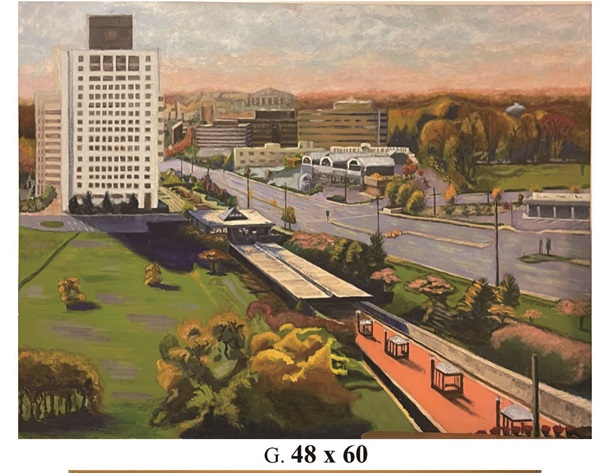

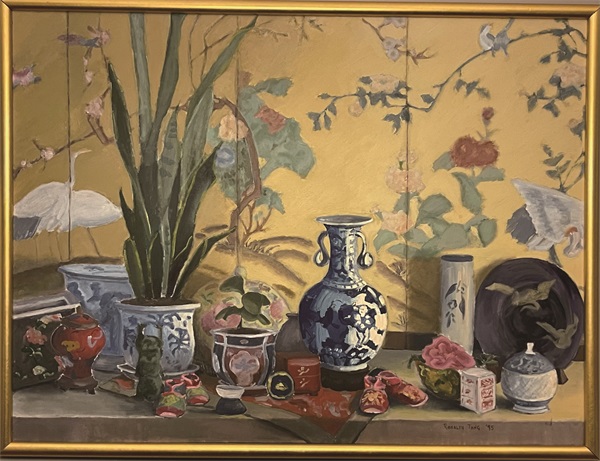
An Interview with Judge Rosalyn Tang
May is annually designated as the Asian American and Pacific Islander (AAPI) Heritage Month, a time to honor the many accomplishments and contributions of Asian Americans and Pacific Islanders in the United States and to celebrate and showcase their diverse cultures and traditions.
We all know that the number of Asians who excel in academia and technology in the United States cannot be underestimated. However, in the field of politics, economy and law, there are very few influential ones.
Thankfully, a few outstanding Asian legal professionals across the United States have emerged as leaders in the legal field and have been appointed as judges for various courts. If you are looking for such a role model, you don’t have to search far. There is one right around the corner, a native Montgomery County, Marylander.
In January 2022, at age 41, Rosalyn Tang was appointed to the Appellate Court of Maryland, 7th Appellate Judicial Circuit representing Montgomery County, by then Maryland Governor Larry Hogan. She is the first Asian-American, and also the youngest woman, to be awarded this honor in the State of Maryland legal appointment history. Before her appointment, several Asian Americans had already been appointed to District and Circuit Courts, but not to the Appellate Court. She made history!
Born in Washington, D.C., and raised in Montgomery County, she is the second daughter of a Taiwanese immigrant family. The Chinese name (Tang Jiayu) given to her by her parents means to become a beautiful woman like a beautiful jade and to place high expectations on her. She certainly did not disgrace her name. She was excellent all the way and lived up to the good wishful meaning of her name.
She attended an all-girl private school, Holton-Arms School in Bethesda. After obtaining her undergraduate degree from Duke University and a law degree from Texas’s Southern Methodist University Dedman School of Law, she was selected in a highly competitive process to become a law clerk for two distinguished Circuit Court Judges, where she gained invaluable experience. Encouraged, she developed the desire to become a judge one day.
Upon completing her judicial clerkship, she first served as an Assistant State’s Attorney for the State’s Attorney’s Office for Montgomery County and later an Associate County Attorney for the Office of the County Attorney for Montgomery County. Prior to her appointment to Appellate Court, she worked at a private law firm (Miles & Stockbridge, P.C.) where she handled general civil litigation matters to include business, real estate, and family-related cases. She also took on leadership roles in professional organizations, such as on the Executive Committee of the Bar Association of Montgomery County, president of the Montgomery County Chapter of the Women’s Bar Association and president of the Asian Pacific American Bar Association of Maryland.
Overall, Judge Tang has gained broad experience in the law practice ranging from civil to criminal at private and government agency settings. That is an incredible accomplishment for any lawyer. Her well-rounded experience serves as a solid foundation for a future career as a judge.
Recently, the A & C Business News got a chance to interview Judge Tang and asked her to share with our community her personal growth experience and the influence of Asian background and culture on her successful legal career.
Why did you pursue a career in law? I went to Duke University, thinking at the time, that I wanted to be an engineer. I had taken some summer classes at University of Maryland that were engineering focused, and I thought that's what I wanted to learn. Then, I did a summer internship with a local firm where I learned a lot. After that, I decided to go to law school.
Why did you choose a law school in Texas? I ended up in Southern Methodist University, Dedman School of Law, which is in Dallas, Texas. It is a good school and gave me a partial scholarship and provided me with an experience away from home at the time.
Why did you return to Maryland after law school? I felt strong ties to my hometown and secured employment with a lawyer in Montgomery County.
Why are there still not as many Asians in law, compared to in other fields? There could be many different reasons for that. One being there's a push to encourage the Asian youth to pursue medicine or math and sciences or engineering. My parents encouraged me to try engineering, so I followed that path in the beginning. However, I discovered that I really enjoyed writing and utilizing analytic reasoning in a different way. It could be that there may still not be as many Asians in the law because the legal profession generally has not been introduced as a viable career path.
Why did you want to become a Judge? I decided to go to law school late in college. After law school, I got to clerk for two wonderful judges in the Circuit Court for Montgomery County. I think having a judicial clerkship experience is a really good experience, because you get to see the courtroom in different practice areas and see different role players, like defense lawyer and prosecutor. This experience also gave me some great insight into how judges think. The two judges I clerked for, they don't think the same, because they pull from their own practical experience. So, getting those perspectives from two different judges was really insightful. The clerkship experience inspired me to pursue a career in litigation. All these experiences prepared me to apply for judgeship someday, when I felt ready. When opportunity came, I am really fortunate that the Governor had that confidence in me to serve in this capacity.
What are the most important features or traits to possess to be a judge? First, have good sound judgment and integrity. Second, it is helpful to have a wide variety of practice experience in different areas, though that is not a requirement. It is important to keep an open mind, read cases and analyze the law critically, and communicate the reasoning clearly. I was fortunate that I had diverse work experiences in criminal, civil, and in government and private practice, all of which helped me gain different perspectives. Finally, having good temperament [PATIENCE] is really also very important, both in the trial and appellate courts.
How do you want to be perceived? I want to be perceived as reliable, responsible, and someone that people can count on because they know that I'm going to do a good job.
What parts of Asian culture and heritage impacted your growing up? I think the culture core values that I grew up with and I inherited from my parents have really impacted and molded me in the way I applied throughout whatever I did at work and other activities. They taught me hard work and sacrifice. They worked multiple jobs to support three kids. They had a restaurant. I have fond memories of spending a lot of time at the Chinese restaurant when I was small, doing my homework until my mom was closing out in the late evening. So that's where I inherited my work ethic. My mom always told me “You need to put at least 110% effort in.” The second thing they taught me is to be humble.
What would you suggest to Asian legal professionals looking to advance their careers? Need to retain those good, strong cultural values and core values. I would encourage younger generations to do a little more networking, do a little more outreach, get to know people, because that can be very helpful, not just for community interaction, but also career advancement. Knowing how to speak to people, knowing how to connect with people, and taking a genuine interest in others. Also, I will really encourage them to apply for a leadership position, whether it's a chair for a section of the Bar Association. The Asian Pacific American Bar Association or other local or specialty bar association is a really good way to get started.
Why is there a lack of Asian judges? I think it might be a combination of a few things. I was just giving a talk at the University of Maryland law school. It was the annual spring reception of APALSA (Asian Pacific American Law Students Association), and they invited me to speak. The theme was Breaking the Bamboo Ceiling. It was a theme that came out of a book called Breaking the Bamboo Ceiling written by Jane Hyun. This book talks about how some of these cultural influences can impact our ability to excel professionally and take on leadership roles. When I grew up, I was taught to defer to those more senior and experienced and always show respect for others. And then the other component, I think particularly among the Asian American community, which is so afraid of failing. When opportunities presented to you, sometimes we can be our own little roadblock and say, I shouldn’t apply because I can’t or I shouldn’t apply because someone’s more qualified. And so that fear of not succeeding can often be a barrier that prevents someone from even starting the journey.
What is your advice to the Asian community? Just again, going back to the core values and pretty much what my parents instilled in me, which is to work really, really hard. I have lived by the following motto since a very young age: “Shoot for the moon. Even if you miss, you'll land among the stars.”* To me, that means do your best, go for the biggest dream you know, get the best result as you can do whatever it takes to get there. And if you fall short, you might be able to be excellent still and do great things. (* This quote is from Dr. Norman Vincent Peale (1898–1993) who was a minister and author, most notably of The Power of Positive Thinking and the theory of "positive thinking".)(**Borrowing a good online translation from "Zhihu": Pursue the direction of the moon, even if you pass by, you will be among the stars)
In fact, there is a similar saying in the ancient Chinese book, The Art of War by Sun Tzu – 求其上,得其中 (aiming high goal would eventually getting not bad results). No wonder Judge Tang has been so impressive and successful in her career, because she has absorbed the essence of Chinese and Western cultures and put them into practice!
As we celebrate AAPI Heritage Month, we are proud to highlight the stories of Asian Americans, like Judge Tang, who are indeed role models to our community. While there are still barriers for Asian Americans pursuing careers such as law in the United States, these inspirational stories give us hope for the future and serve to inspire another generation of Asian American professionals. Hard work is one of the most important traits for success, but a good balance of work and play is the key to a prosperous life. While excelling in her busy career, Judge Tang is also an accomplished painter (see attached photos of paintings). Thank you, Judge Tang, for an insightful interview, and Happy AAPI Heritage Month!


 相关文章
相关文章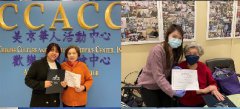
 精彩导读
精彩导读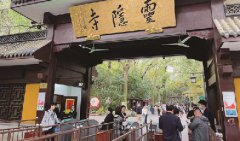

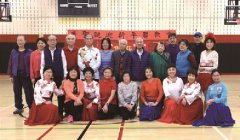
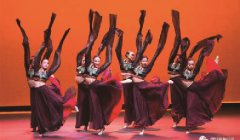

 热门资讯
热门资讯 关注我们
关注我们
